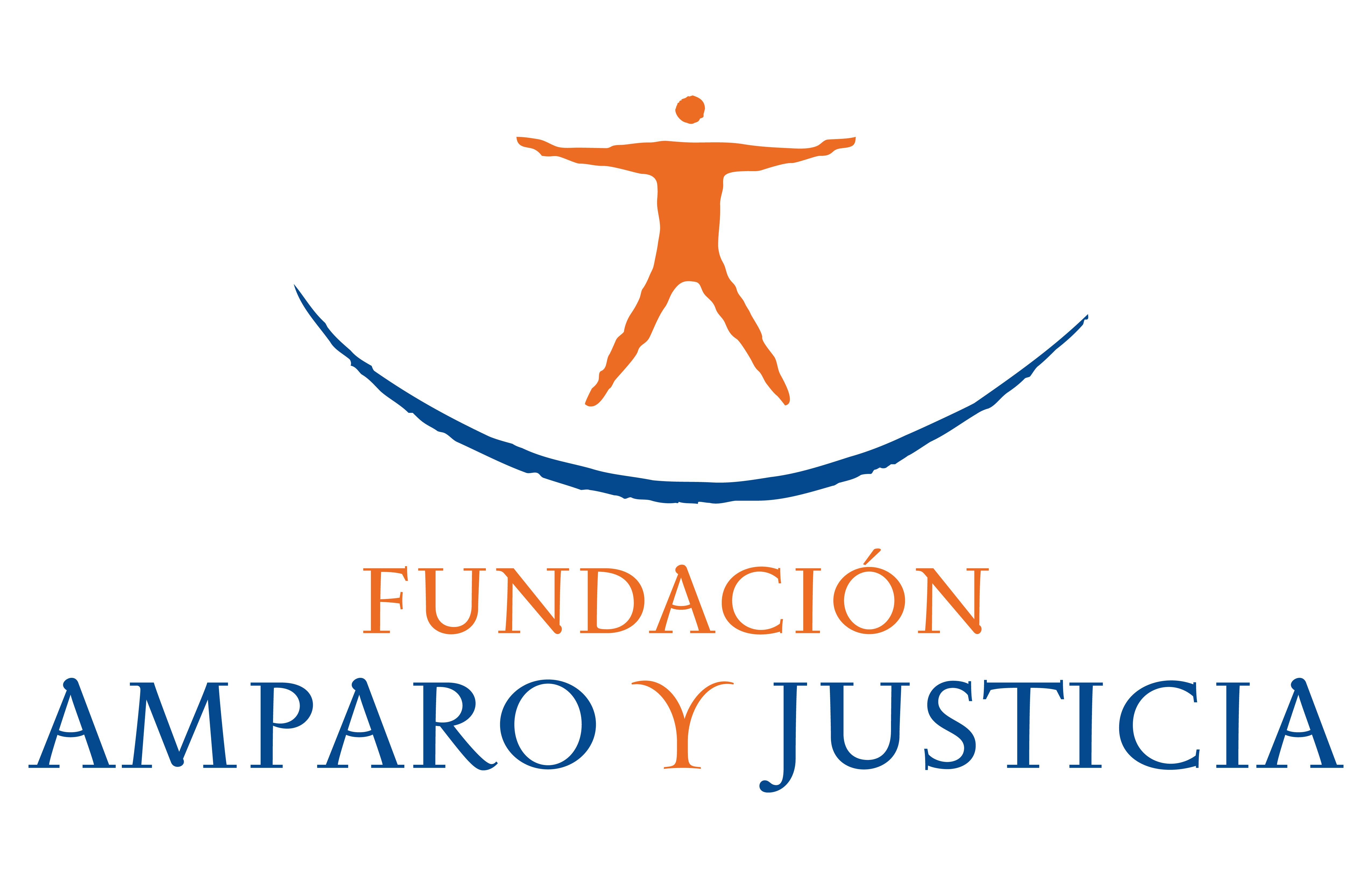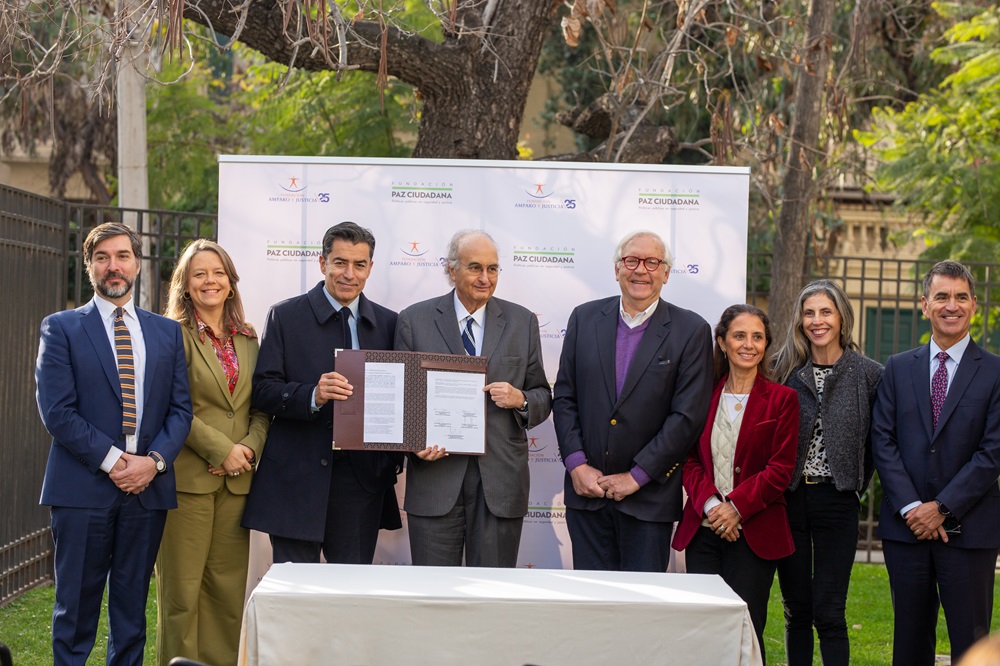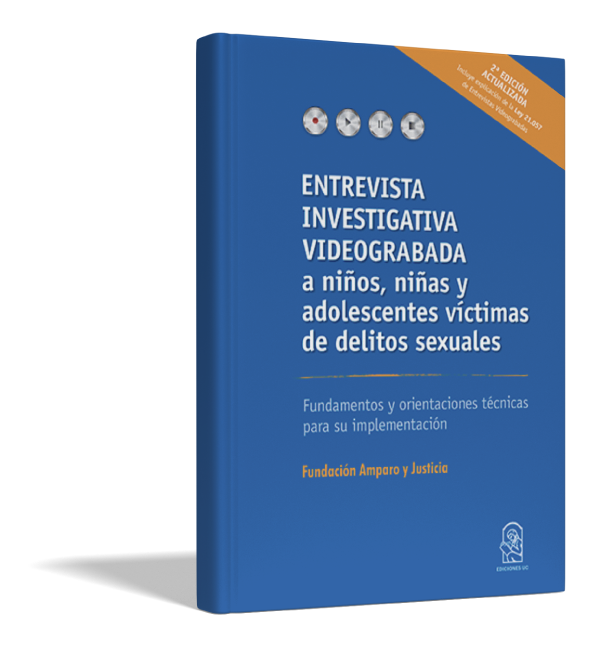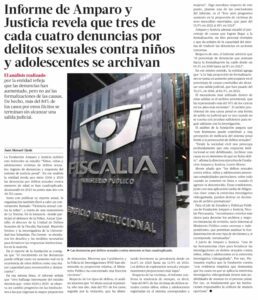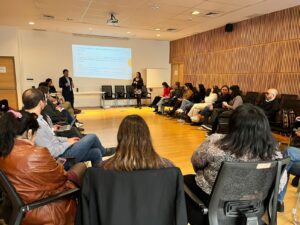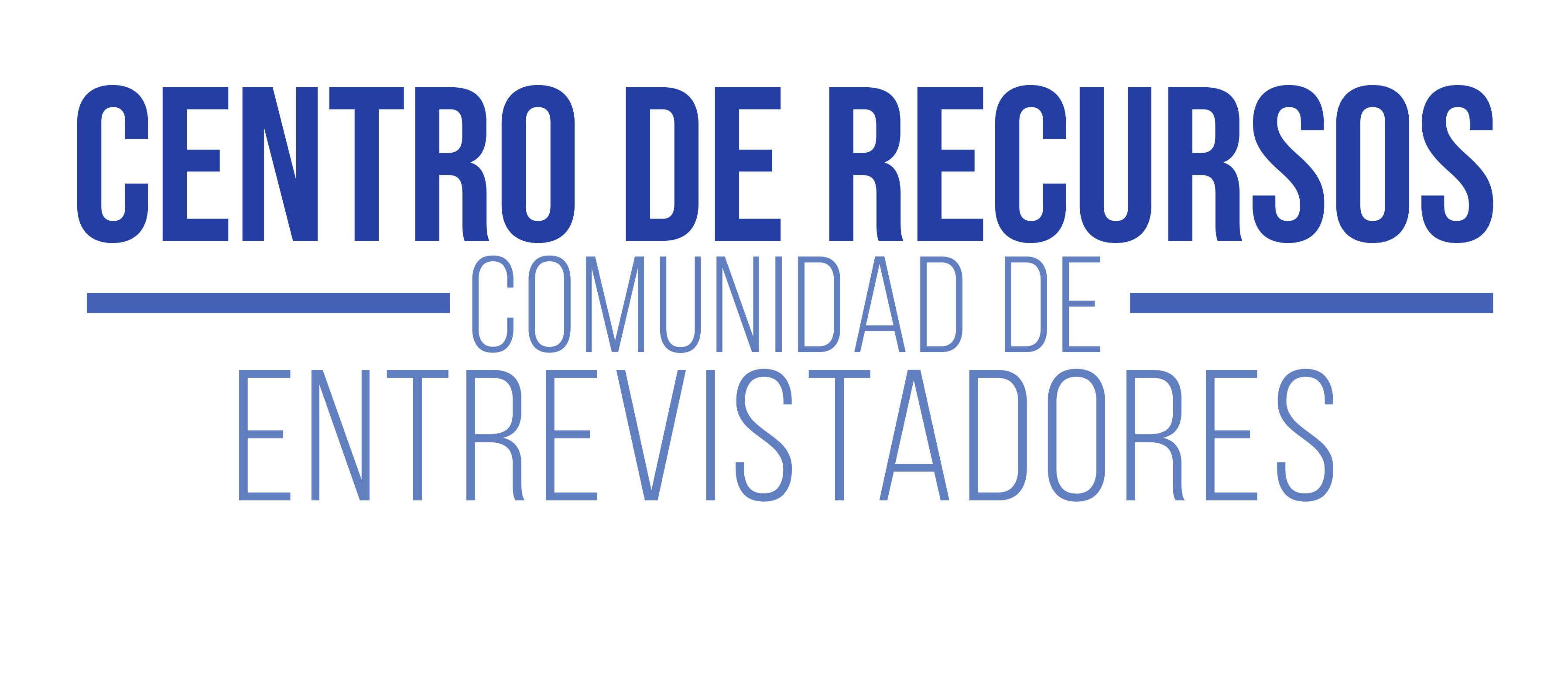This agreement aims to evaluate the effects of this technique on criminal prosecution, which is vital for collecting testimonies from child and teen victims of sexual abuse and other serious crimes.
In a joint effort to improve the protection of child and teen victims of sex crimes, the foundations Amparo y Justicia and Paz Ciudadana signed an agreement to evaluate the impact of Videorecorded Investigative Interviews, regulated by Act 21,057.
“It is essential to evaluate compliance with public policy objectives within the criminal system, especially for policies that directly affect the protection of child and teen victims of crimes. This agreement, the result of an important civil society effort, will provide us a clear analysis of the improvements and challenges in the implementation of Act 21,057,” said Alejandro Espinoza, president of Amparo y Justicia.
Executive Director of Fundación Paz Ciudadana Daniel Johnson pointed that “it is key to rigorously evaluate the impact of the norms we have implemented, but to do it correctly, it is necessary to always define their objectives and how to accomplish them from the beginning. This public policy is very important because it not only prevents secondary victimization of children and teens, but also seeks to improve the effectiveness of the criminal prosecution system.”
Videorecorded Investigative Interviews (VRI)
Both institutions reported that the Videorecorded Investigative Interview (VRI) is a methodology that makes it possible to collect testimonies from child and teen victims of sex crimes in their own words, thus, reducing their revictimization and ensuring the quality of their declarations in the prosecution process. This analysis aims to support the criminal prosecution of sexual and other serious crimes against minors.
According to the statistics report from Fundación Amparo y Justicia (2023), only 38.9% of children and teens were registered as victims (15,345) after being interviewed.
At the international level, VRI and structured evidence-based protocols have shown positive results. A U.S. study, with a sample of 1,200 cases of child sexual abuse between 1994 and 2000, showed that the use of the NICHD Protocol, on which Act 21,057 is based, significantly increased the rates of charges being dismissed (54% with the protocol; 45% without the protocol) and sentencing rates in prosecution cases. This study concluded that structured investigative interviews improve the quality of the information collected, making it easier to verify the facts and help effectively prosecute cases.
